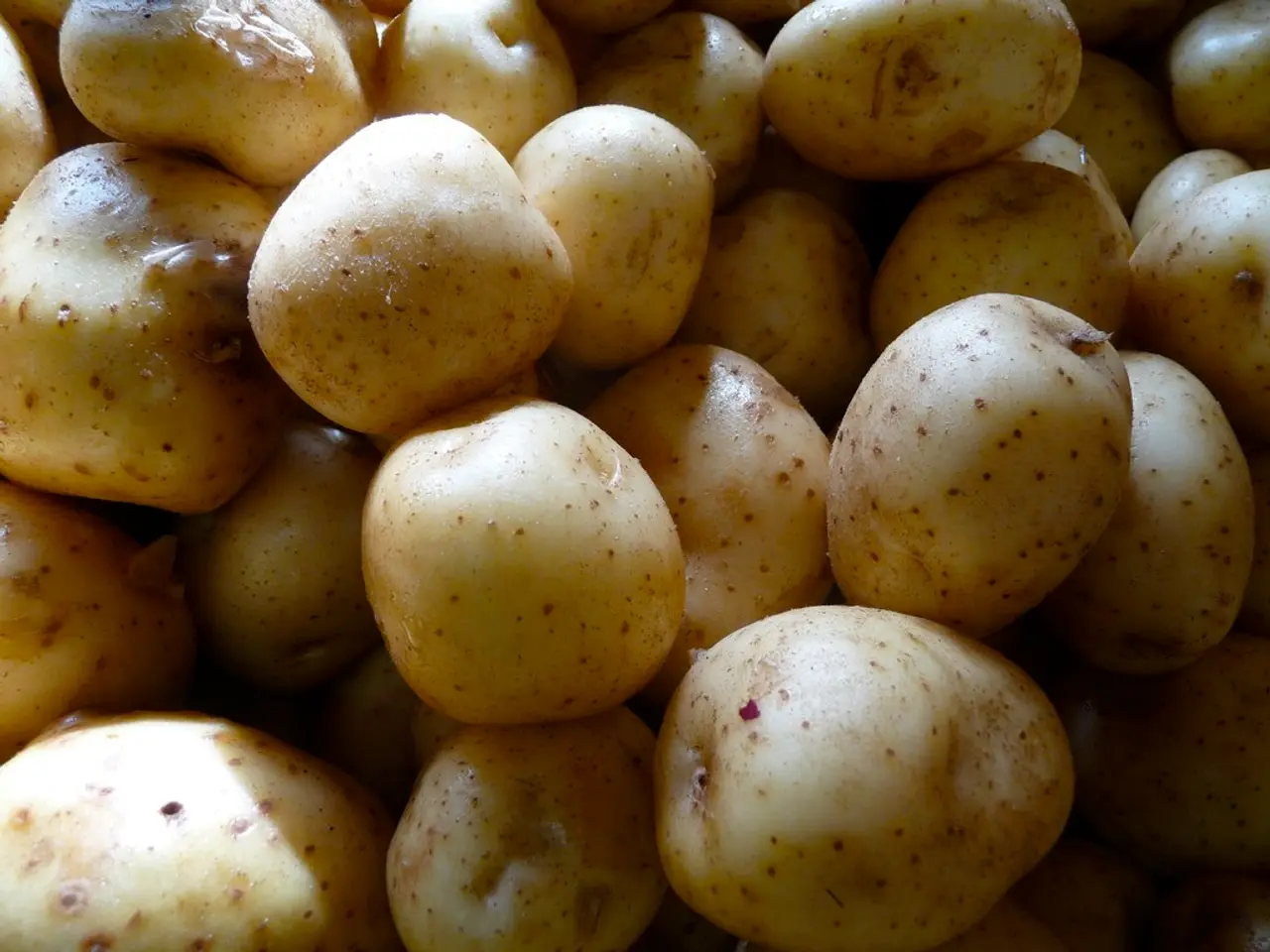The Significance of Overlooking Potato Disease - The Importance of Recognizing Potato Ailments
In recent times, the Baden-Württemberg Ministry of Agriculture has issued a warning about the escalating threats of late blight and Stolbur to potato cultivation, not just in Karlsruhe, but across Germany. It is crucial to address these concerns, as both diseases pose a significant risk to the staple food potato.
Late blight, a fungal disease, and Stolbur, transmitted by a leafhopper, are not specific to potato cultivation in Germany. However, they both pose a significant threat to potato cultivation, with late blight also affecting tomatoes. The commonality between these two diseases is their potential to cause extensive damage to crops, with potatoes in the ground rotting due to late blight, and tomatoes becoming inedible due to late blight.
The challenges for late blight disease in potato cultivation in Germany are largely driven by climate change and regulatory constraints. Changing climatic conditions, such as increased humidity and temperature fluctuations, are expanding the severity and distribution of late blight, making outbreaks more frequent and harder to predict. The EU's restrictions or bans on effective fungicides like Mancozeb have reduced growers' options for controlling late blight, weakening the ability to manage outbreaks effectively.
Despite these challenges, there are potential solutions to mitigate the impact of late blight and Stolbur on potato yields. Intensified monitoring and early detection through regular field scouting and forecasting tools can help growers take timely protective measures. Robust fungicide strategies, combining different available fungicides while adhering to local regulations, can maintain control of late blight. Vigilance during critical periods, such as warm and wet weather, allows for targeted fungicide applications or other interventions to prevent spread. Protecting tubers through proper haulm destruction and soil management is increasingly emphasized to reduce losses caused by late blight.
LTZ agricultural engineer Bernhard Bundschuh emphasizes that the fight against late blight is becoming more difficult. However, by implementing these solutions, growers in Karlsruhe and across Germany can work towards securing potato yields and maintaining the quality of their crops in the face of these threats.
[1] https://www.researchgate.net/publication/325705141_Impacts_of_Climate_Change_on_Late_Blight_Disease_in_Potatoes [2] https://www.ncbi.nlm.nih.gov/pmc/articles/PMC6860543/ [3] https://www.fao.org/3/a-i7617e.pdf [4] https://www.researchgate.net/publication/324022072_Early_Detection_of_Late_Blight_in_Potatoes_and_Tomatoes_Using_a_Smartphone_Application [5] https://www.researchgate.net/publication/335466260_Integrated_Disease_Management_Strategies_for_Late_Blight_Disease_in_Potatoes_A_Review
The community and employment policies should prioritize investments in agricultural research, given the escalating threats of late blight and Stolbur to potato cultivation across Germany, as these diseases also affect tomatoes. Policies involving science, medical-conditions, and health-and-wellness should focus on understanding the impact of late blight and Stolbur on human health, as well as providing education on proper food handling to minimize potential risks.




